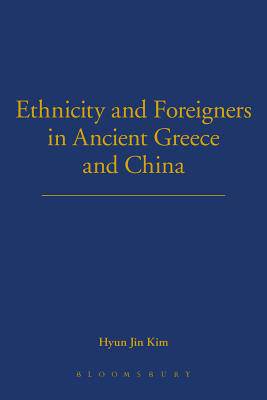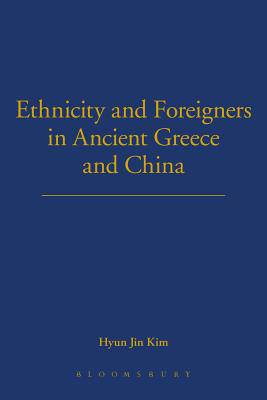
- Afhalen na 1 uur in een winkel met voorraad
- Gratis thuislevering in België vanaf € 30
- Ruim aanbod met 7 miljoen producten
- Afhalen na 1 uur in een winkel met voorraad
- Gratis thuislevering in België vanaf € 30
- Ruim aanbod met 7 miljoen producten
Zoeken
€ 339,45
+ 678 punten
Omschrijving
Why did the Greeks claim to be superior to their neighbors and yet record, rightly or wrongly, that the founders of some of their most important cities were foreigners from the Near East? Can we find similar ethnocentric representations of outsiders in the literature of the other great literate civilization of the Ancient World, Early China? How do the Greek and Chinese representations of the foreigner differ? These questions are examined in a comparative analysis of Archaic/Classical Greek and Early Chinese historical and ethnographic sources, in particular the 'Histories' of Herodotus and the 'Shiji' of Sima Qian. The author argues that Greece was an integral part of the wider Eastern Mediterranean and Near Eastern civilization and that this had a major impact on the ways in which the Greeks chose to represent foreigners in their literature. He also shows that the Ancient Chinese of the Han dynasty were as assertive as the Greeks in claiming their ethnic superiority over non-Chinese, but concludes that, although the two cultures shared the same breadth and variety of prejudices towards outsiders, they chose to emphasize different categories of differentiation.
Specificaties
Betrokkenen
- Auteur(s):
- Uitgeverij:
Inhoud
- Aantal bladzijden:
- 224
- Taal:
- Engels
Eigenschappen
- Productcode (EAN):
- 9780715638071
- Verschijningsdatum:
- 1/08/2009
- Uitvoering:
- Hardcover
- Formaat:
- Genaaid
- Afmetingen:
- 163 mm x 234 mm
- Gewicht:
- 521 g

Alleen bij Standaard Boekhandel
+ 678 punten op je klantenkaart van Standaard Boekhandel
Beoordelingen
We publiceren alleen reviews die voldoen aan de voorwaarden voor reviews. Bekijk onze voorwaarden voor reviews.







